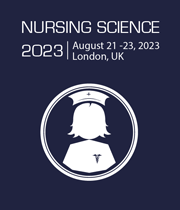Title : Clinical economics: A new task for different levels of the nursing professions
Abstract:
Clinical Economics (CLINECS) was born 45 years ago from the different results that I observed as a young oncologist in our hospitalized patients and read in the scientific literature. It took more than 10 years for us to realize the cause of this difference: the results reported in the literature were obtained on selected "mono-morbid" patients under experimental study conditions, while we observed results in everyday care in non-selected "multi-morbid" patients that were treated under the non-experimental conditions of the daily "natural chaos of care".
The differences between experimental research and care under everyday conditions (either with or without systematic analysis of results) are explained. Clinical Economics is a new subject that describes the added value of health services that can be measured under everyday conditions. However, this added value can only be measured if two conditions are met. The natural chaos needs to be resolved by simple statistical methods and second, society, including politicians and health care providers need to develop interest in CLINECS. Finally, we discuss the possibilities of CLINECS to combine not only marginal economic successes with not only marginal health progress.
Any health reform that is carried out without measuring the added value achieved is equivalent to flying blind without functioning navigation instruments. No one will think of putting undoubtedly useful health services to the test. However, there are numerous diagnostic and therapeutic measures that are doubted not only by some skeptics. The benefits of these measures should be assessed and confirmed.


